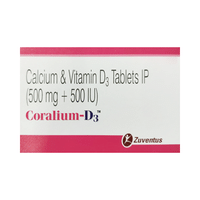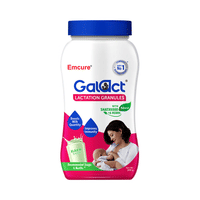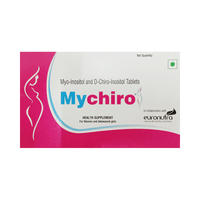food interaction for Cytonac
alcohol interaction for Cytonac
pregnancy interaction for Cytonac
lactation interaction for Cytonac
food
alcohol
pregnancy
lactation
Cytonac 200 mg/200 mcg Capsule ER is to be taken with food.
This will help to avoid side effects like acidity, heartburn and diarrhea.
None
This will help to avoid side effects like acidity, heartburn and diarrhea.
None
CAUTION
It is unsafe to consume alcohol with Cytonac 200 mg/200 mcg Capsule ER.
UNSAFE
Information regarding the use of Cytonac 200 mg/200 mcg Capsule ER during pregnancy is not available. Please consult your doctor.
CONSULT YOUR DOCTOR
Information regarding the use of Cytonac 200 mg/200 mcg Capsule ER during breastfeeding is not available. Please consult your doctor.
CONSULT YOUR DOCTOR
SALT INFORMATION FOR Cytonac
Aceclofenac(200mg)
Uses
Aceclofenac is used for pain relief. It relieves pain and inflammation in conditions like rheumatoid arthritis, ankylosing spondylitis, and osteoarthritis.
How it works
Aceclofenac is a non-steroidal anti-inflammatory drug (NSAID). It works by blocking the release of certain chemical messengers that cause pain and inflammation (redness and swelling).
Common side effects
Nausea, Diarrhea, Abdominal pain, Constipation, Dyspepsia, Increased liver enzymes, Gastritis, Mouth ulcer, Increased blood urea, Increased creatinine level in blood, Rash, Anaphylactic reaction, Anemia (low number of red blood cells), Cardiac failure, Gastrointestinal ulcer, Breathlessness
Misoprostol(200mcg)
Uses
Misoprostol is used in medical abortion and post-delivery bleeding.
How it works
Misoprostol increases contractions of the uterus to cause abortion. It can also prevent post-delivery bleeding due to poor contraction of the uterus.
Common side effects
Dyspepsia, Rash, Angioedema (swelling of deeper layers of skin), Septic shock, Myocardial infarction, General discomfort, Diarrhea, Abdominal pain, Nausea, Vomiting, Flatulence, Constipation, Uterine bleeding, Headache
SUBSTITUTES FOR Cytonac
1 Substitutes
1 Substitutes
Sorted By
 Rs. 98.44save 18% more per Capsule ER
Rs. 98.44save 18% more per Capsule ER
Expert advice FOR Cytonac
- You have been prescribed Aceclofenac to relieve pain and inflammation.
- Take it with food or milk to prevent upset stomach.
- Take it as per the dose and duration prescribed by your doctor. Long term use may lead to serious complications such as stomach bleeding and kidney problems.
- It may cause dizziness, drowsiness or visual disturbances. Use caution while driving or doing anything that requires concentration.
- Avoid consuming alcohol while taking Aceclofenac as it can cause excessive drowsiness and increase your risk of stomach problems.
- Inform your doctor if you have a history of heart disease or stroke.
- Your doctor may regularly monitor your kidney function, liver function and levels of blood components, if you are taking this medicine for long-term treatment.
Frequently asked questions FOR Cytonac
Aceclofenac
Q. Is Aceclofenac a good painkiller?
Aceclofenac is effective in relieving pain and inflammation. It is used to provide relief from various sorts of pain such as sprains, strains and other injuries. It is also helpful in various types of arthritis, gout, pain and inflammation following surgery.
Q. Is Aceclofenac safe?
Aceclofenac is safe if used in the dose and duration advised by your doctor. Take it exactly as directed and do not skip any dose. Follow your doctor's instructions carefully and let your doctor know if any of the side effects bother you.
Q. Does Aceclofenac get you high?
No, Aceclofenac does not get you high. It does not have an abuse potential (drug-seeking behavior) and does not cause physical or psychological dependence. However, if you do not feel well, consult your doctor.
Misoprostol
Q. What is Misoprostol and what it is used for?
Misoprostol is a medicine which helps in medical termination of the pregnancy. It is prescribed along with another medicine called Mifepristone. It is only used to terminate a pregnancy which should not be more than 63 days old, counting from the first day of the last menstrual period. It works by increasing the contractions of the uterus. It may also be used in the prevention or treatment of post-delivery bleeding and for cervical ripening.
Q. How and in what dose should I take Misoprostol?
This medicine is administered only in a clinic or healthcare facility under the supervision of a gynaecologist.
Q. What should I expect after taking Misoprostol?
For medical termination of pregnancy: You may experience abdominal cramping, diarrhea, stomach pain, and nausea immediately after taking Misoprostol. You may also have vaginal bleeding within 4 hours of taking Misoprostol. You may also be asked to stay at the clinic or healthcare center for at least 3 hours after taking this medicine. After 14 days of taking Mifepristone (pill you took before Misoprostol) your gynaecologist may run some blood tests or perform ultrasonography to confirm whether pregnancy has been terminated or not.






















